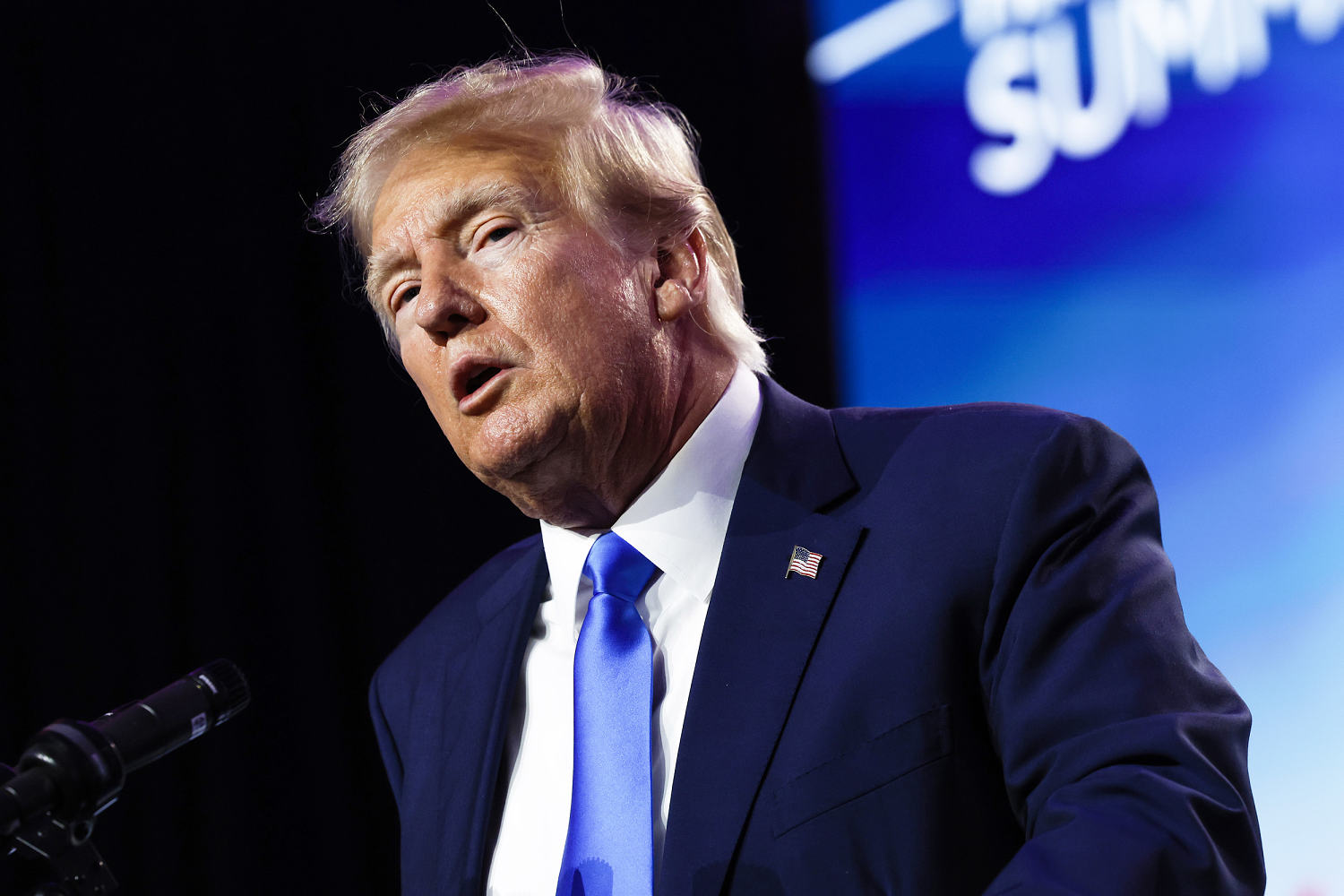[ad_1]

WASHINGTON — Steering clear of a political firestorm for now, the Supreme Court said Friday it would not immediately decide the key question of whether Donald Trump has broad immunity for actions he took as president challenging his 2020 election loss.
The court denied without comment special counsel Jack Smith’s request asking the justices to circumvent the normal appeals court process and quickly decide the question, which looms large in Trump’s prosecution in Washington over allegations of election interference.
If Trump were to win on this threshold issue, the charges would be dismissed. If he loses, the legal proceedings in the trial court would continue, with Trump having other issues he could mount appeals over.
As a result of the court’s refusal to intervene, the U.S. Court of Appeals for the District of Columbia Circuit will take first crack at the issue; it is scheduled to hear oral arguments on Jan. 9.
Once that court rules, the Supreme Court could act quickly on whether to take up the case.
In asking the court to step in on an expedited basis, Smith said the case “presents a fundamental question at the heart of our democracy: whether a former President is absolutely immune from federal prosecution for crimes committed while in office.”
Trump’s lawyers argued in court papers that Smith had given “no compelling reason” why the Supreme Court should immediately step in ahead of the appeals court.
On Dec. 7, Washington-based U.S. District Judge Tanya Chutkan denied Trump’s motion to dismiss his indictment on presidential immunity and constitutional grounds. The case is on hold while Trump appeals the decision.
Trump’s lawyers argue that his role in questioning the result of the election was within the “outer perimeter” of his official responsibilities as president, citing a 1982 Supreme Court ruling about presidential immunity. Therefore, under Supreme Court precedent, Trump is immune from prosecution, his lawyers say.
They also say the Senate’s acquittal of Trump following impeachment proceedings over his role in events that led to the Jan. 6, 2021, attack on the U.S. Capitol means he cannot be separately prosecuted for the same actions.
Smith argues that Trump’s role in seeking to overturn the election was not related to his official responsibilities as president and that the Constitution’s language on impeachment allows for separate criminal proceedings even if the president is acquitted.
In August, a federal grand jury in Washington indicted Trump on four charges: conspiracy to defraud the U.S., conspiracy to obstruct an official proceeding, obstruction, and conspiracy against the right to vote and to have one’s vote counted. Trump pleaded not guilty.
The election interference case is one of four criminal prosecutions Trump faces heading into the 2024 presidential election season, in which he is a front-runner in the polls for the Republican nomination.
[ad_2]
Source link
